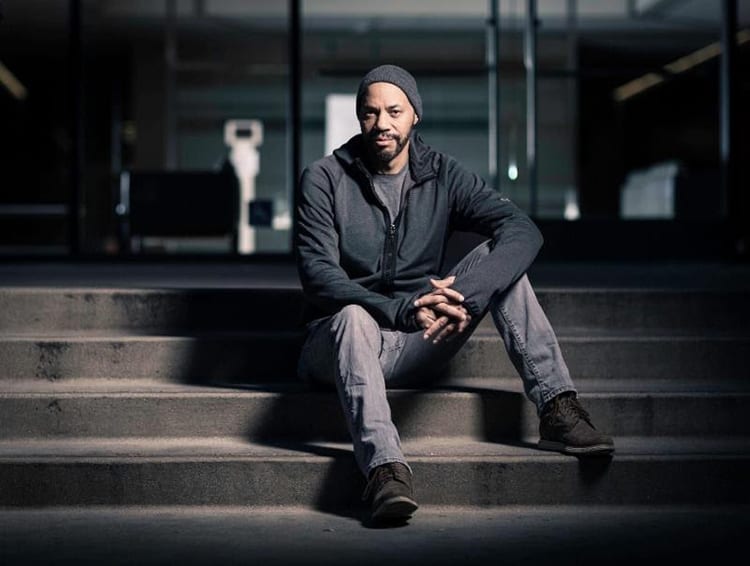By Adam Wesley
GREEN BAY – Rep. Joel Kleefisch had a ready response for lawmakers and school administrators who were quick to speak out against a proposal late last year for statewide random drug testing in high schools.
With the Wisconsin State Assembly back in session, Kleefisch is planning in the next two months to introduce a bill that would require schools to test students for drugs at the request of parents. Kleefisch said the testing service would provide a way to combat an increased and deadly use of heroin and other illegal drugs that stops short of mandating randomly testing students, as the Republican from Oconomowoc initially proposed in early December.
“It’s still not a proposal, it’s still not a bill, it’s not been drafted,” Kleefisch said last week. “But, I think with the concerns people have about forced testing, our best approach is to make the parents aware that we will offer an opt-in for parents to have their children tested.”
Specifics for what the expanded drug testing would entail and how it would be funded need to be determined, though Kleefisch is suggesting a minimally invasive process using hair samples.
Some school leaders are receptive to such a proposal, after they balked at the earlier recommendation for ordering statewide testing out of concern that it takes away local control from schools.
“If someone asks my opinion of it, I would definitely be willing to look into it, at least,” said Jeff Baumann, principal at Crivitz High School, which started random drug testing for most of its students in 2015.
Crivitz is among several high schools in the state that randomly test students for illegal drug use if they participate in extracurricular activities and/or drive to school.
However, unlike some high schools in the state that have random drug testing, Crivitz doesn’t honor requests from parents to test their kids for drugs. Though he’s receptive to possibly changing that stance, Baumann wondered what role, if any, schools should take with parental requests for drug testing.
“In my opinion, if a person is that concerned that their child is doing something they shouldn’t be doing, you can buy drug-testing kits over the counter. That’s what I would do,” said Baumann, a parent of teenagers.
Leaders from school districts that don’t have drug testing are taking a wait-and-see approach, but want assurances that they will be involved in the discussion.
Damian LaCroix, superintendent of the Howard-Suamico School District, urged lawmakers and legislative staff at a forum hosted last month by Pulaski High School to engage school administrators “as partners in policy development that directly affects our students, our families and our communities.”
At the time of the Dec. 14 forum, LaCroix took exception to Kleefisch’s proposal of statewide random drug testing in schools.
“For these types of proposals to be happening in a vacuum, absent our opportunity and the opportunity for local control and school-board members to engage in meaningful policy development, I think represents short-sightedness and will continue to cause this frustration and lack of trust at certain levels that I think presently exist,” LaCroix told the forum panel.
Parents Kept In The Loop
School administrators in Crivitz, which began testing students during the 2015-16 school year, say about 170 of its 209 students are eligible to be tested. Those students participate in co-curricular activities or have parking privileges on school grounds.
Five students are randomly picked every two weeks. That comes to roughly 90 drug tests in a school year, all done free through a partnership with Bay Area Medical Center in Marinette.
Of the more than 120 urine tests administered at the school in the first year and a half of the program, administrators say no more than a handful have tested positive for illegal drugs.
Parents are immediately notified if their son or daughter has a positive test. A course of action is taken for parents to get help for their child. Punishment also is meted out, whether it’s a suspension from sports or another activity, or a prolonged revocation of a parking permit.
“I think what parents appreciate that we do is that we don’t get any police involved or anything like that,” said Jeff Dorschner, the school’s athletics director. “It’s for them (the parents) to know. It’s for your own information. We’ll give them the option on offering them help and assistance through counseling services, through our guidance department, but from there on out, it’s up to the parents to determine whether or not they deem that their son or daughter has a problem or has an issue. It’s that early intervention.”
Dorschner led the push for testing in the high school in response to a spike in student code-of-conduct violations that stemmed from illegal drug use. At the time, a few parents opposed the program, and the school also received calls and emails from outside the district arguing that random testing violates students’ privacy.
That’s also the position of the ACLU of Wisconsin.
Associate Director Molly Collins said the organization opposes student drug testing because it is intrusive and possibly counterproductive.
This year, there have been no complaints about Crivitz’s drug-testing policy, Baumann said.
“We’re not the first one to invent the wheel here,” Dorschner said. “About 20 percent of the schools nationwide do (random drug testing). So, it’s nothing that’s brand new.
“(And) I’ve said this from Day 1, if we’re able to save one kid, turn one kid around, that’s worth it.”
The school doesn’t, however, test students at the request of their parents.
“We have declined because we don’t want to go down that slippery slope,” Dorschner said.
He explained that consistency with all students is important in setting school policy.
“If we start taking requests from parents to test their kids and then there are other kids who may be (suspected) of using (drugs) but their parents do not request a test be conducted, it puts administration in a tough spot in being consistent,” Dorschner said.
Testing Has To Be ‘A Good Fit’
Conversely, De Pere High School honors parents’ requests to have their kids tested.
Those students are added to the 12 who are randomly picked each week from three groups: students in extracurricular activities, those who have permits to park in the school lot and those on the school’s DREAM Team who pledge to be drug- and alcohol-free.
That covers more than 80 percent of the school’s enrollment of more than 1,400 students.
Nick Joseph, the school principal, said students are told from which pool they were selected if their number is picked for a drug test. Students being tested because of a parental request, no matter if they’re already eligible for drug testing, also are told.
“We’re very honest with them,” Joseph said.
Joseph declined to give numbers, but he said positive results since the school started testing in the 2007-08 school year are “rare.” Punishment may include a sports suspension, community/school service or loss of parking, in addition to completing a co-curricular rehabilitation program.
The tests are done for free in collaboration with Aurora BayCare Medical Center.
De Pere also randomly tests students for alcohol at school dances.
“It’s part of what we do,” Joseph said. “The community is supportive. From talking to some kids or some parents, they feel that it’s given the kids an out of, ‘I don’t want to do that because what if I get tested?’”
Regardless of what measures, if any, are proposed at the state level, Joseph and other school leaders are advocating for input from the local level.
“In my opinion, to be successful, it’s got to be a good fit for the school and the community,” Joseph said.
Pulaski Superintendent Bec Kurzynske, whose school district doesn’t have drug testing for high school students, wants to see what unfolds in Madison in the near future.
“I would need to know more about the funding of the (proposed) testing,” she said. “I am very interested to see details of the governor’s proposed budget and engaging with our elected officials to share how the proposals may impact our students and community.”
A Push For Local Control
Kaukauna High School Principal Corey Baumgartner said he would like legislators to leave drug testing policies to the schools.
Like De Pere, Kaukauna randomly tests students in co-curricular activities, those in a specific drug- and alcohol-free club and those registered to use the school’s parking lot.
“Really, the whole process is to deter our students from use, but once we do identify those students, we really want to provide an opportunity for intervention and treatment for those who need it,” Baumgartner said. “It’s not just to play ‘Gotcha!’ and ‘Let’s kick you off of the musical or your sports team.’”
About 108 students are tested per year, and in the last three years just a few have come back positive, he said. Each test costs about $36, he said. Those costs could add up if the state requires additional testing.
“If they mandate it, I hope funding would come with it to help those schools,” he said.
Baumgartner said he understands the grave concern around opioid and other drug abuse inWisconsin. At the same time, he said he appreciated that Kaukauna’s drug testing grew from local recognition of the issue.
Kleefisch is optimistic he can rally enough votes within the Legislature for the expanded testing. The aim, he says, is to curb a deadly epidemic of heroin and other opiates.
“If we have an opt-in for parents, that’s ultimate local control,” Kleefisch said. “It’s so local it’s in the home.”
Republished from USA TODAY NETWORK-Wisconsin.





